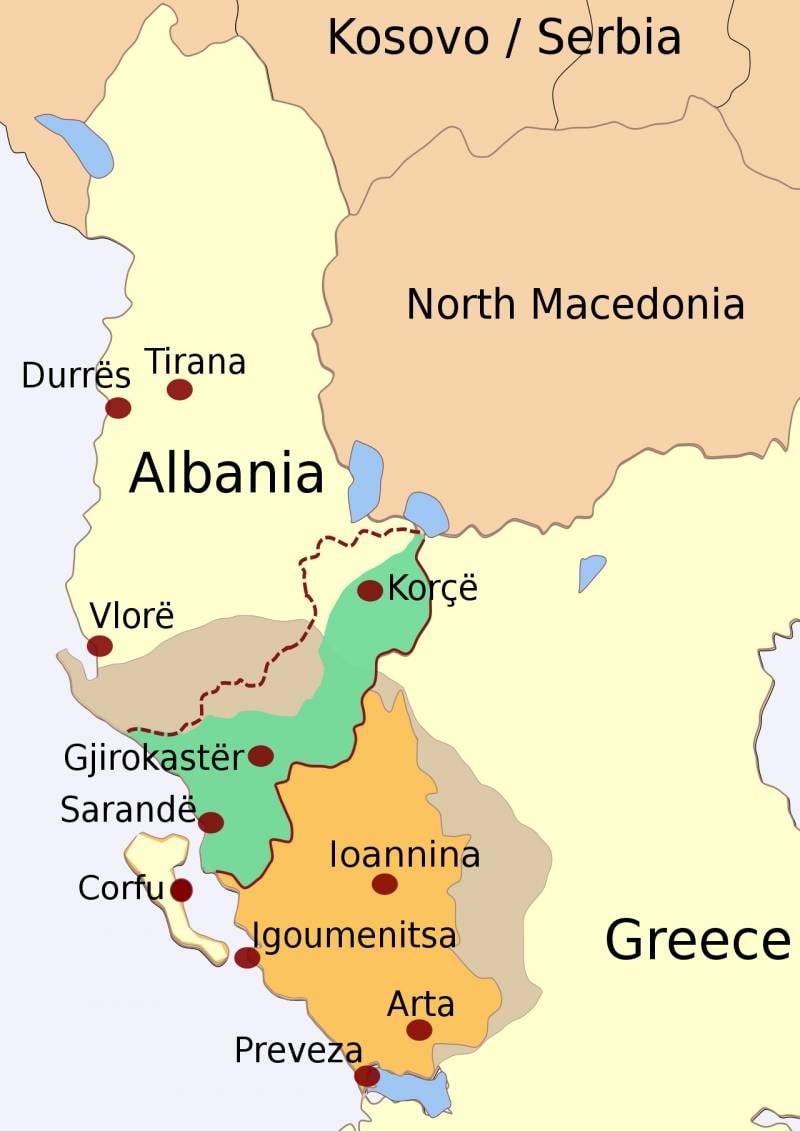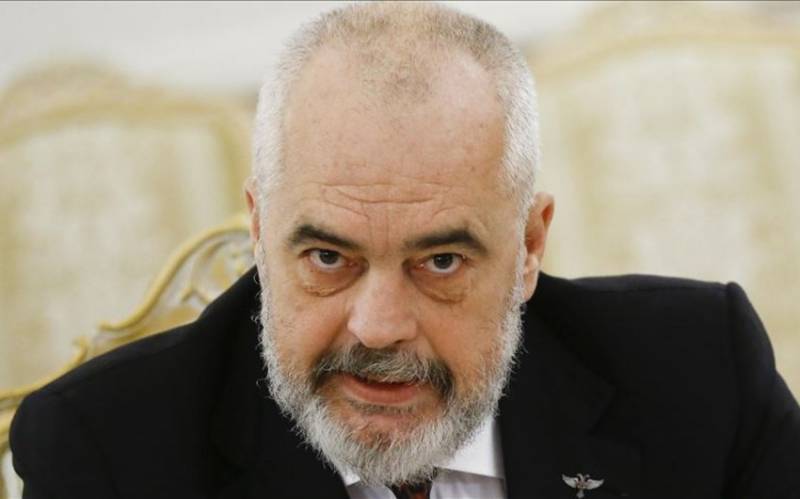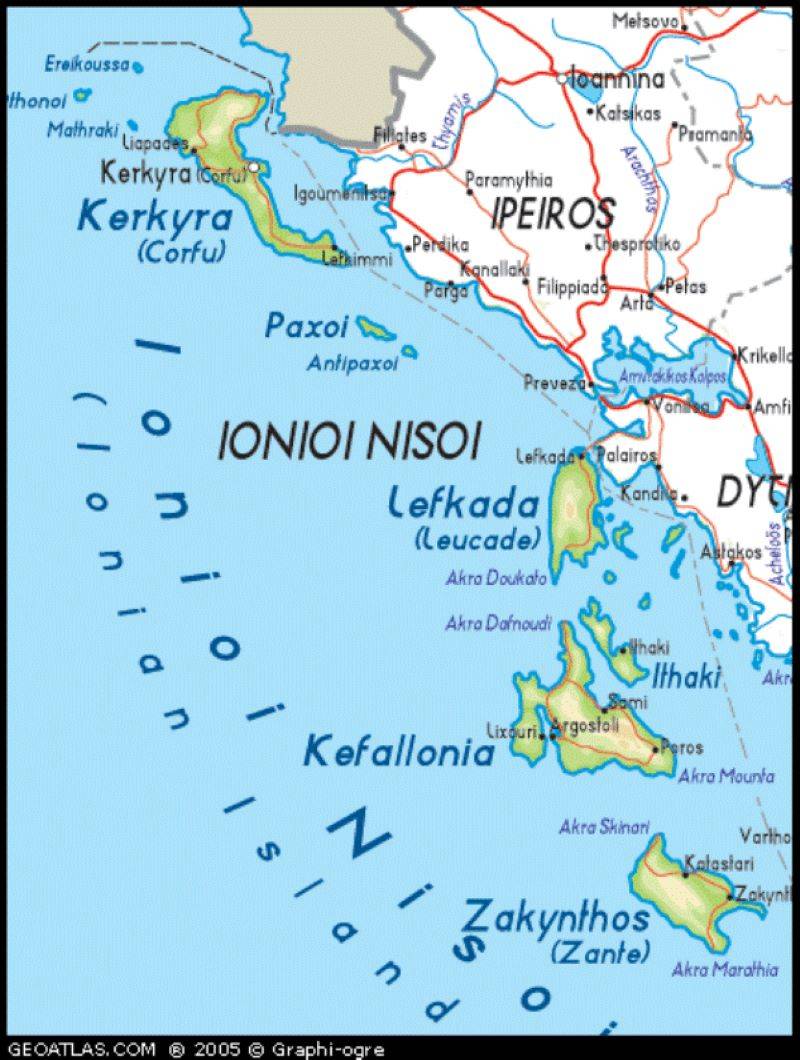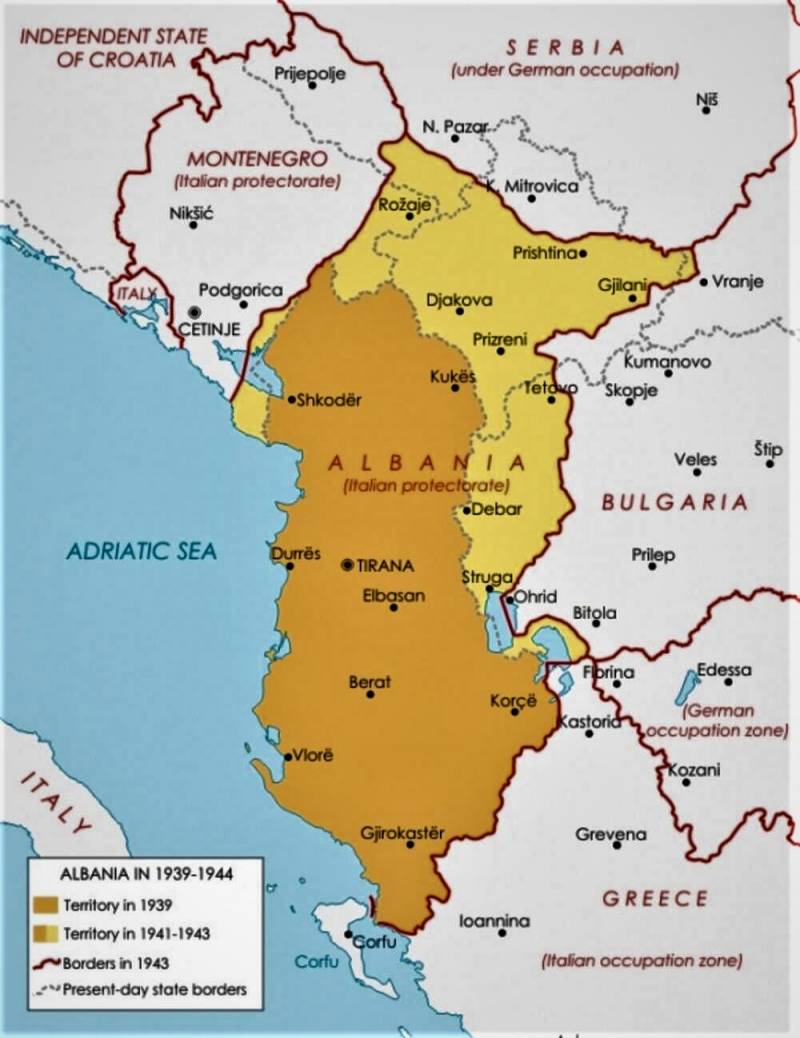Greece expects "its own Kosovo" - in the north, in Epirus

In the shadow of the "Kosovars"
Against the background of the confrontation between Kosovo and Serbia, the sharp aggravation of relations between Greece and Albania remains “little noticed”. Almost fraught with military conflict. It is characteristic in this regard that in Tirana they are now focusing precisely on the Greek direction.
At the same time, Albanians prefer to remain mostly "sympathetic" to their fellow tribesmen in Kosovo. In such a situation, it is quite possible to assume that the Albanian authorities consider it necessary to maintain the status quo with Serbia in connection with the promotion of the conflict with Athens.
To put it simply, in Tirana they are again making it clear to the Kosovars: we are not up to you. On the eve of the EU-Western Balkans conference in Tirana (the first ten days of December 2022), Albanian Prime Minister Edi Rama literally burst into insults against Greece. In fact, provoking at least a break in diplomatic relations.
Meanwhile, a number of Albanian media published publications about the "unfair" Albanian-Greek border, the oppression of Albanians in the border regions of Epirus (north-west Greece), whose Albanian name is Chameria. In turn, Greece periodically "reminds" of the oppression of the Greek minority in southern Albania.

Edi Rama himself accused Athens of
Greek Prime Minister Kyriakos Mitsotakis hesitated to respond in the same vein:
Many experts explain this position of Athens by the aggravation of Turkish-Greek relations due to the oil and gas bearing Aegean shelf and some coastal islands. That is, Athens does not risk conflict on two fronts at once.
Imperialists from the West and "Stalinists" in Tirana
Meanwhile, in October 2022, a new round of negotiations on the maritime Albanian-Greek border turned out to be fruitless in Prague. Recall that the islands of Corfu, Erikossa and Vidal closely adjoin southern Albania: this is the northern region of the Greek Ionian Islands.
During the Stalinist period in Albania (1947-1990), especially since the early 60s, Athens preferred not to argue with Tirana about these borders, the passage of which Albania - mainly in its favor - achieved back in the mid-1960s. Since its confrontation with the post-Stalinist USSR and with Tito's Yugoslavia suited the West perfectly, Athens was "advised" to give in and not renew the maritime dispute with Tirana.

In the late 1990s, Tirana agreed to negotiations to clarify this border, and in 2009 the corresponding agreement was signed. But Edi Rama has been claiming for years that under that agreement, Greece illegally received 225 sq. m. km of Albanian waters.
The Albanian Constitutional Court upheld this position at the same time. And when E. Rama became prime minister - since 2013 - territorial disputes escalated. And in October 2021, it was announced by both parties that the same issue was referred to the International Court of Justice (in The Hague). But there is still no final decision.
In the north of Greece - another Kosovo
This is supplemented not only by mutual accusations, although more and more frequent, about the oppression of the Albanian and Greek ethnic minorities. Greece in November 2018 demanded territorial-national autonomy for the South Albanian Greeks, numbering about 80 thousand people.
The same idea at the official level is periodically put forward by the “post-Stalinist” Tirana about Chameria, where over 160 thousand ethnic Albanians live. Moreover, in these regions of Albania and Greece, illegal separatist groups have long existed: for example, in Epirus, since 2001, the Chameria Liberation Army has been operating.

Recall that almost all of Chameria was part of Albania in 1912–1918. As in 1941-1943. - during the period of occupation by Italy of Albania and western Greece, including all the Ionian Islands, up to Corfu and Kefalonia.
In a word, the Albanian-Greek border area is already slowly but surely turning into an analogue of the inter-ethnic conflict in Kosovo. Accordingly, confrontational relations between Belgrade and Pristina will be repeated, if not already repeated in Tirana's relations with Athens.
Information